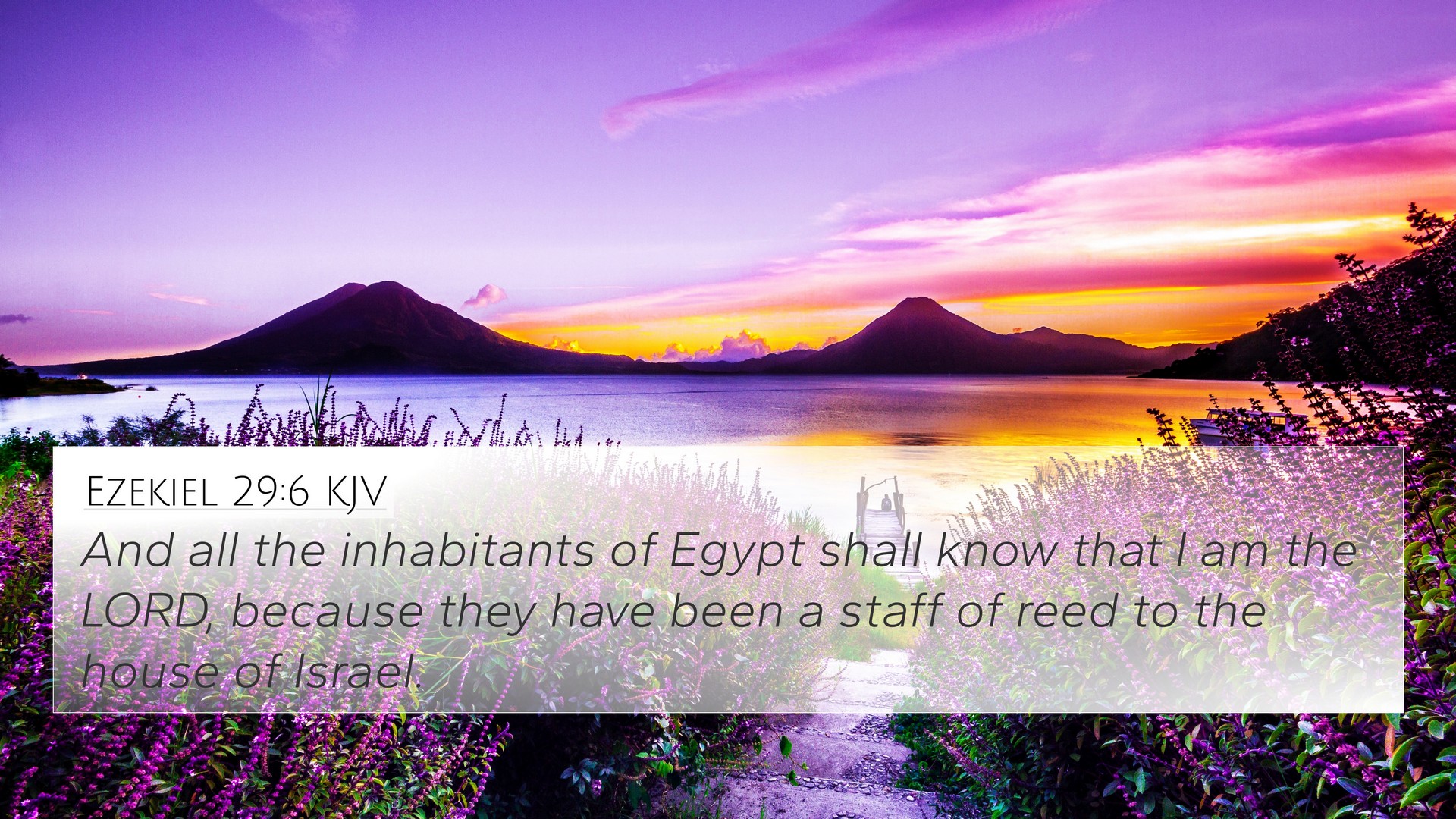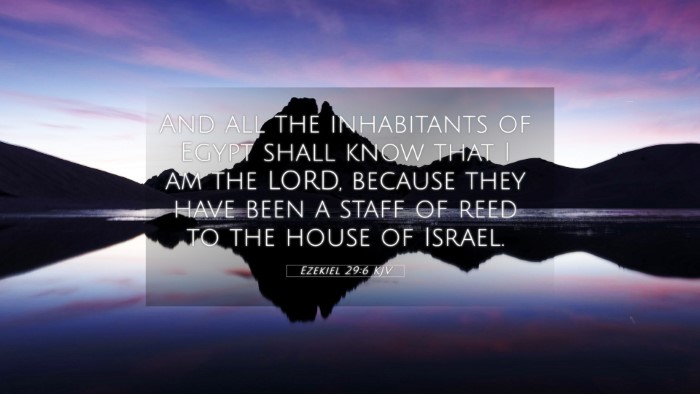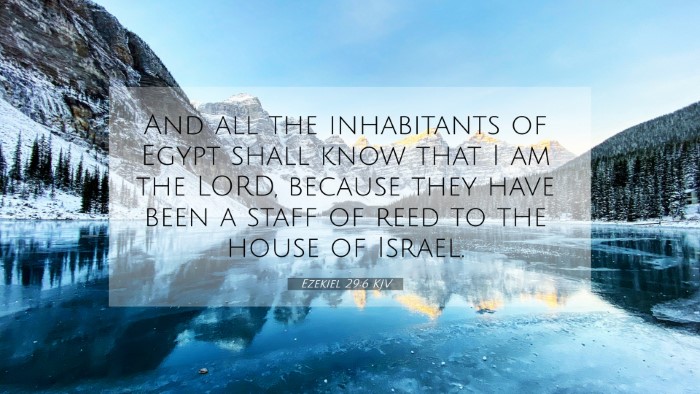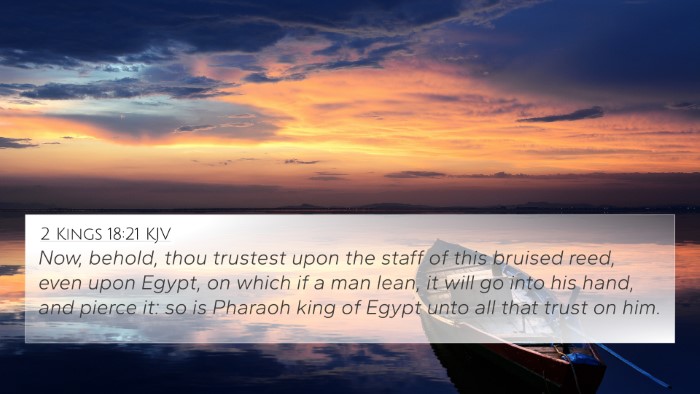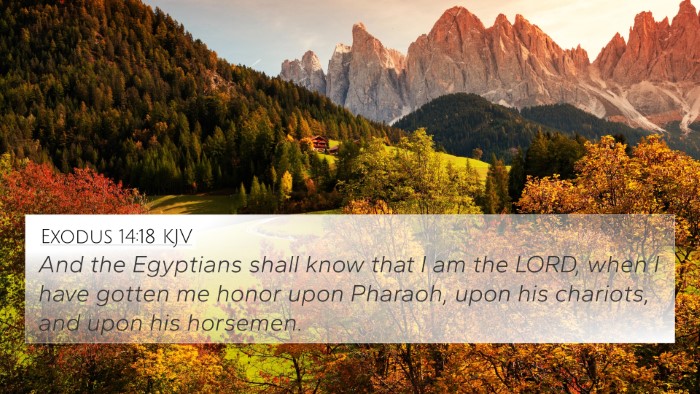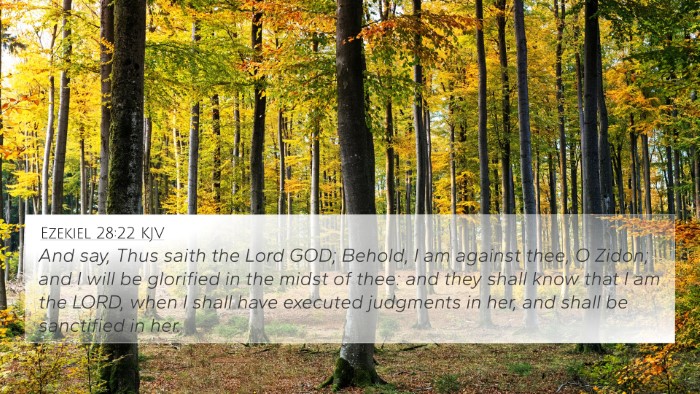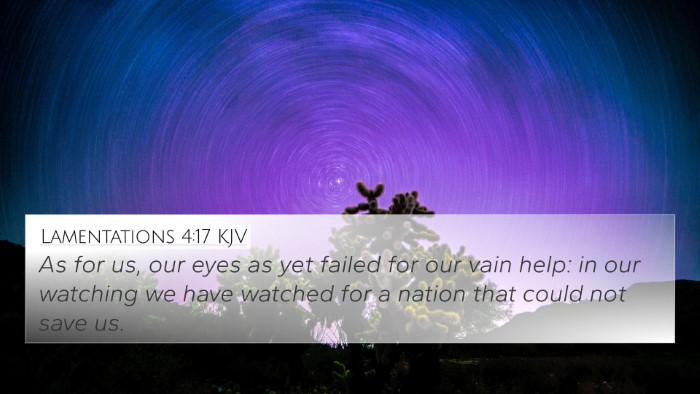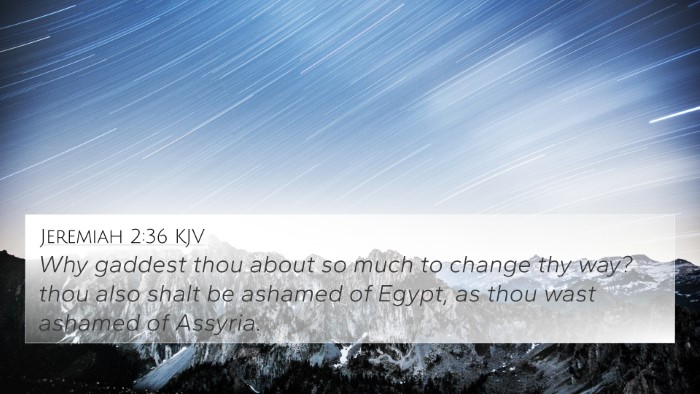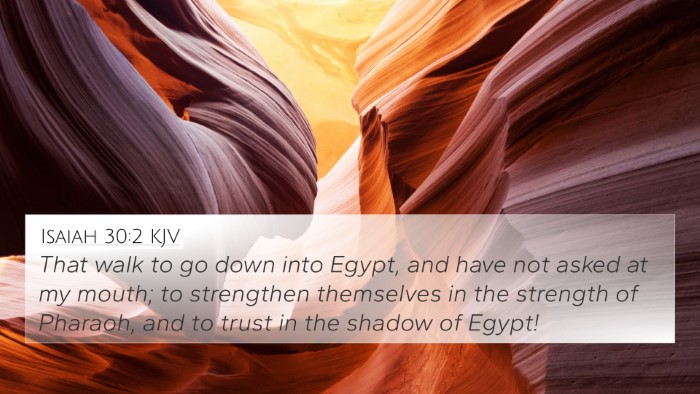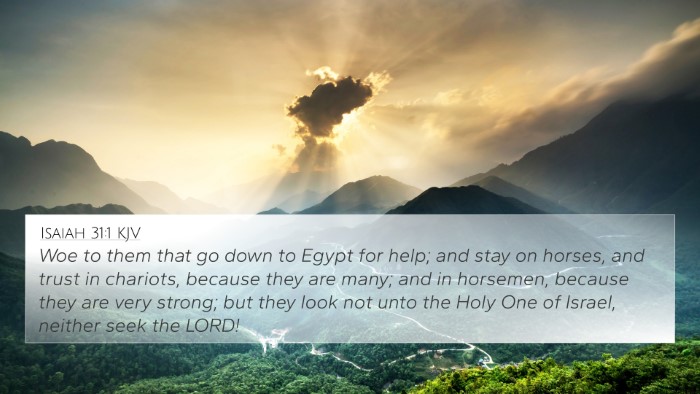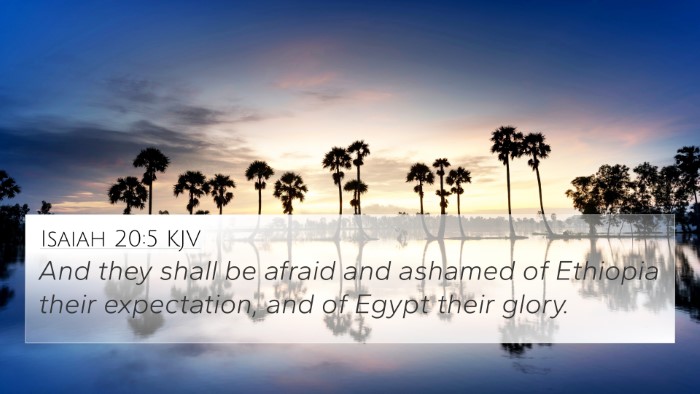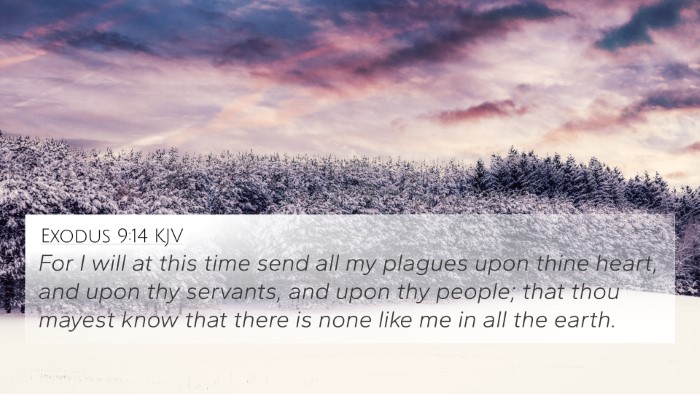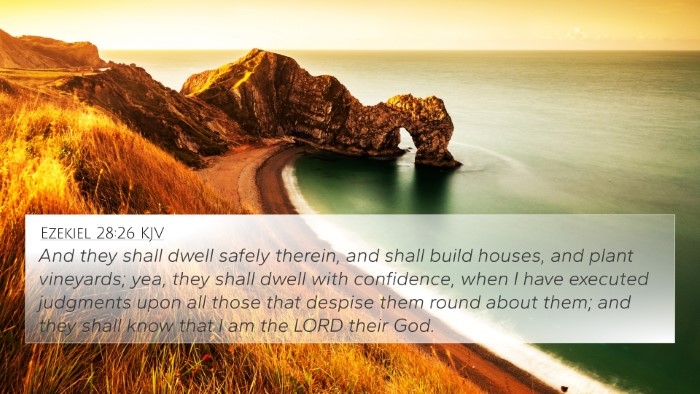Ezekiel 29:6 Bible Verse Meaning and Commentary
Bible Verse: Ezekiel 29:6
"And all the inhabitants of Egypt shall know that I am the LORD, because they have been a staff of reed to the house of Israel."
This verse is a proclamation by God through the prophet Ezekiel, revealing the fate of Egypt in the context of Israel's historical relationship with the nations surrounding them. The significance of this verse can be unpacked through various commentaries.
Interpretation from Public Domain Commentaries
Matthew Henry Commentary:
Matthew Henry emphasizes the historical backdrop of Israel's reliance on Egypt during times of distress. He notes that while Egypt was expected to provide support, it often failed and instead became a source of disappointment. The image of Egypt as a "staff of reed" symbolizes weakness and fragility. Henry underscores that God's action of demonstrating His sovereignty over Egypt will teach both Israel and Egypt crucial lessons about reliance on Him.
Albert Barnes Notes:
Albert Barnes highlights the divine intention behind this prophecy—God's purpose is to reveal His identity and sovereignty to all nations. He clarifies that the act of punishing Egypt serves a dual purpose: it affirms God’s authority to Israel and warns Egypt of the consequences of its failure to serve as a stronghold for Israel. Barnes also discusses the metaphor of a "staff of reed" as it indicates a broken and unreliable support, signifying the futility of Egypt's past covenant with Israel.
Adam Clarke's Commentary:
Adam Clarke offers a theological perspective on the implications of God's judgment on Egypt. He notes that this judgment is not merely an act of retribution but also serves as an invitation for Egypt to recognize God as the true God. Clarke emphasizes that ultimately, the inhabitants of Egypt will come to a realization of the sovereign Lordship of Yahweh, which is central to the narrative arc of redemption.
Connections and Cross-References
Ezekiel 29:6 is rich in thematic connections and serves as a pivotal point for cross-referencing other scriptures. Below are key Bible verses that correlate with Ezekiel’s message:
- Isaiah 19:1: A prophecy against Egypt, reinforcing similar themes of judgment.
- Ezekiel 30:13-19: Further declarations against Egypt, emphasizing God’s authority over nations.
- Jeremiah 46:25: God’s judgment on Egypt as a part of His dealing with nations.
- Psalm 78:42-43: Reminds Israel of God’s power and acts during their history with Egypt.
- Hosea 7:16: Speaks to Israel's tendency to rely on Egypt, which leads to downfall.
- Revelation 16:10: A symbolic connection regarding the ultimate judgment of nations.
- Deuteronomy 17:16: God’s law regarding Israel not returning to Egypt for help.
- 2 Kings 18:21: Warning against seeking help from Egypt, highlighting its unreliability.
- Isaiah 31:1: A direct admonition against relying on Egypt instead of God.
- Exodus 14:13-14: God’s previous deliverance from Egypt, underscoring Israel’s dependence on Him.
Thematic Analysis
The thematic connections between Ezekiel 29:6 and other biblical texts revolve primarily around the ideas of divine sovereignty, human reliance, and the consequences of misplaced trust:
- The Sovereignty of God: Throughout the scriptures, God's dominance over nations is a recurring theme, as seen in Ezekiel 29:6.
- Misplaced Trust: This verse serves as a reminder that reliance on human institutions (like Egypt) rather than God leads to disappointment.
- God’s Revelation: The recognition of God by the nations is a key aspect of biblical prophecy and ultimately points toward redemption.
- Judgment and Restoration: The patterns of God’s judgment followed by restoration within Israel serves as primary narratives that resonate in Ezekiel's message.
Using Cross-References for Study
For those engaging in a deeper understanding of scripture, employing tools for Bible cross-referencing can significantly illuminate scripture interpretation. Here are some methods and resources:
- Bible Concordance: A systematic way to explore specific words or themes across chapters.
- Bible Cross-Reference Guide: Useful for finding connections between seemingly disparate verses.
- Cohesive Bible Study Plans: Engaging in thematic or character studies can enrich one’s understanding.
- Bible Reference Resources: Utilizing resources that facilitate cross-referencing can deepen insights.
Conclusion
Ezekiel 29:6 serves as a profound illustration of God’s relationship with Israel and the surrounding nations, particularly Egypt. It is a reminder of the futility of human reliance in the face of divine authority and underscores God's ultimate purpose in revealing Himself to both Israel and Egypt. For those studying the Bible, cross-referencing this verse with others helps to uncover rich theological themes and the interconnectedness of scripture.
